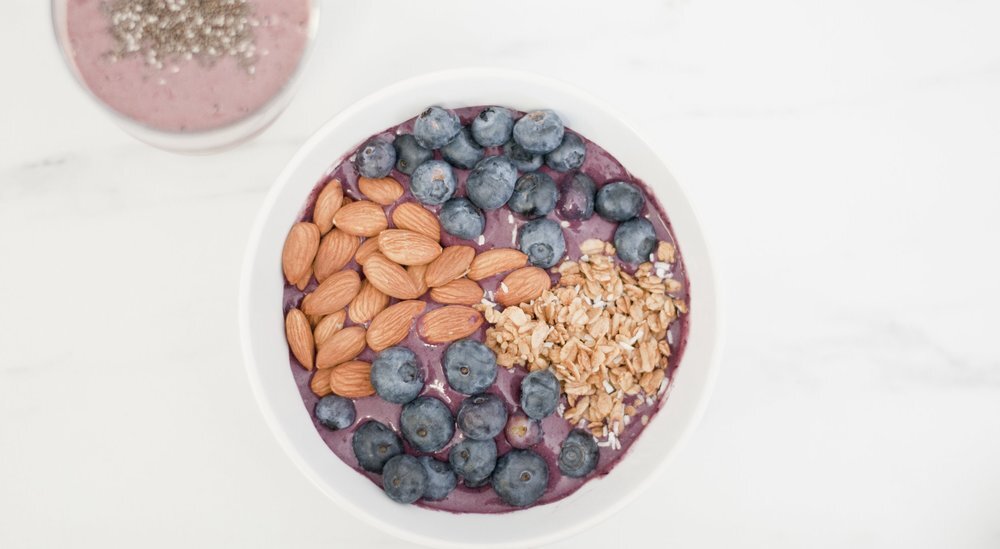You Are What You Eat: How Food Impacts Focus, Mood (Especially with ADHD)
photo credit: @theonlyaggie
We’ve all heard the phrase “You are what you eat.” It sounds cliché—but for adults living with ADHD or navigating busy university life, this statement carries weight far beyond physical health. What you put on your plate can directly affect your focus, mood, emotional regulation, memory, and even your self-identity.
Let’s get real: it’s not easy managing responsibilities, deadlines, and social lives when your brain feels like it’s jumping from one tab to the next—without warning. But there’s one overlooked tool that can help regulate all of that: nutrition.
Food Is More Than Fuel—It’s Self-Respect in Action
When we think about building confidence or improving executive functioning, we often look outward: planners, productivity hacks, supplements, maybe even therapy. But true self-concept—your belief in who you are and what you’re capable of—starts with integrity.
And integrity isn’t just about following through on big goals. It’s about the micro-choices you make when no one’s watching. Including how you treat your body, how you feed your brain, and how you care for your nervous system.
Choosing foods that support your brain health is an act of self-respect. It’s a way of saying:
"I take myself seriously."
"My energy and clarity matter."
"My focus deserves to be protected."
ADHD, Focus, and Food: What the Science Says
Research shows that nutrient-dense foods—particularly those rich in antioxidants, healthy fats, and Omega-3s—can enhance cognitive function, support neurotransmitter balance, and stabilize mood. For people with ADHD, who often experience fluctuations in attention and energy, this can make a world of difference.
Here Are the Top 5 ADHD-Friendly Focus Foods:
photo credit: @theonlyaggie
(1) BLUEBERRIES: Brain-Boosting Antioxidants
Blueberries are rich in antioxidants, particularly flavonoids, which have been shown to improve working memory and mental flexibility. According to the European Journal of Nutrition, elderly adults who consumed blueberries experienced measurable improvement in cognitive function—particularly in task-switching and memory recall.
For ADHD brains, that means better focus and less fatigue during mentally demanding tasks (hello, study marathons and Zoom meetings).
Best way to eat them: Fresh and raw to retain all nutrients. Add them to smoothies, oatmeal, or just eat them straight as a snack
photo credit: @theonlyaggie
(2) AVOCADOS: Healthy Fats for Mood Stability
Avocados are high in healthy fats and folate—both of which help regulate brain chemistry. The fats help slow digestion (preventing blood sugar crashes), while folate supports the production of dopamine and serotonin—neurotransmitters crucial to mood and motivation.
Low folate levels have been linked to symptoms of depression, which often co-exists with ADHD.
Try this: Avocado toast, blended in a smoothie, or as a creamy base for salad dressings.
photo credit: @theonlyaggie
(3) LEAFY GREEN VEGETABLES: Folate + Omega-3 for Emotional Regulation
Spinach, kale, and other dark leafy greens are packed with folic acid and Omega-3 fatty acids—both essential for emotional stability and brain function.
Studies have found that Omega-3 supplementation can lead to a 50% reduction in depressive symptoms in just one month. When your mood is regulated, your focus and motivation follow.
Quick tip: Add spinach to your eggs, toss kale into pasta, or blend greens into your smoothie.
(4) FATTY FISH: Fuel for Memory and Focus
Salmon, tuna, and mackerel are loaded with Omega-3s, which have been shown to improve cognitive performance, reduce symptoms of ADHD, and lower the risk of depression.
In cross-cultural studies, populations that consumed higher amounts of fatty fish reported significantly lower levels of major depression. For the ADHD mind, that translates into more balanced energy and enhanced memory retention.
Easy meal idea: Grilled salmon over rice with steamed greens and a squeeze of lemon.
(5) NUTS: Energy + Cognitive Protection
photo credit: @theonlyaggie
Nuts, especially walnuts and almonds, support both cardiovascular and brain health. They provide steady energy, are rich in Vitamin E, and help maintain cognitive function over time.
One study found that women who ate nuts 2+ times a week retained stronger memory and focus compared to those who rarely ate them.
Snack tip: Keep a small container of mixed nuts in your bag for an easy, nutrient-dense energy boost.
Wait… What About Chocolate?
Good news: dark chocolate (in moderation) is actually great for your brain. Cocoa contains flavanols, which are known to reduce cognitive impairment and boost attention. Just be mindful of added sugar and opt for 70% cacao or higher.
Final Thoughts: Eat Like You’re Becoming Who You Want to Be
If you live with ADHD or simply struggle with focus and follow-through, know this:
You don’t need a perfect diet.
You don’t need 20 supplements or a 10-step plan.
You just need small, consistent acts of integrity with yourself.
That starts with what’s on your plate.
Because when you eat like someone who values their mind, energy, and emotional clarity—your self-concept shifts. You begin to believe:
“I can focus.”
“I take care of myself.”
“I’m in integrity with the life I want to live.”
And that belief changes everything.
Photo credit: @theonlyaggie
Author: Candice Lapin | @candicelapinmindset
_________________________
Bibliography:
Miller, M G, et al. “Dietary Blueberry Improves Cognition among Older Adults in a Randomized, Double-Blind, Placebo-Controlled Trial.” European Journal of Nutrition., U.S. National Library of Medicine, Apr. 2018, www.ncbi.nlm.nih.gov/pubmed/28283823. .
Folstein, M, et al. “The Homocysteine Hypothesis of Depression.” The American Journal of Psychiatry., U.S. National Library of Medicine, June 2007, www.ncbi.nlm.nih.gov/pubmed/17541043.
Osher, Y, and R H Belmaker. “Omega-3 Fatty Acids in Depression: a Review of Three Studies.” CNS Neuroscience & Therapeutics., U.S. National Library of Medicine, 2009, www.ncbi.nlm.nih.gov/pubmed/19499625.
Gómez-Pinilla, Fernando. Nature Reviews. Neuroscience, U.S. National Library of Medicine, July 2008, www.ncbi.nlm.nih.gov/pmc/articles/PMC2805706/















